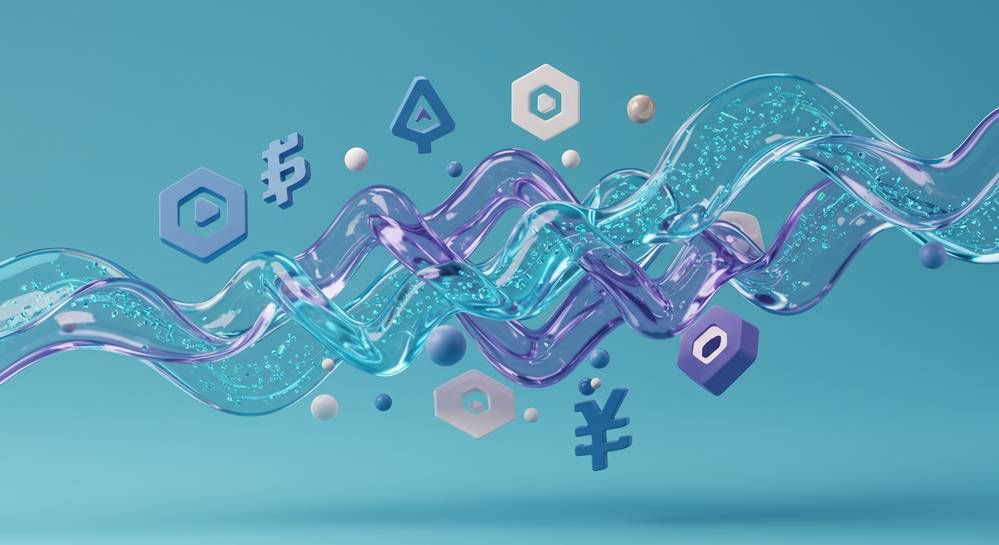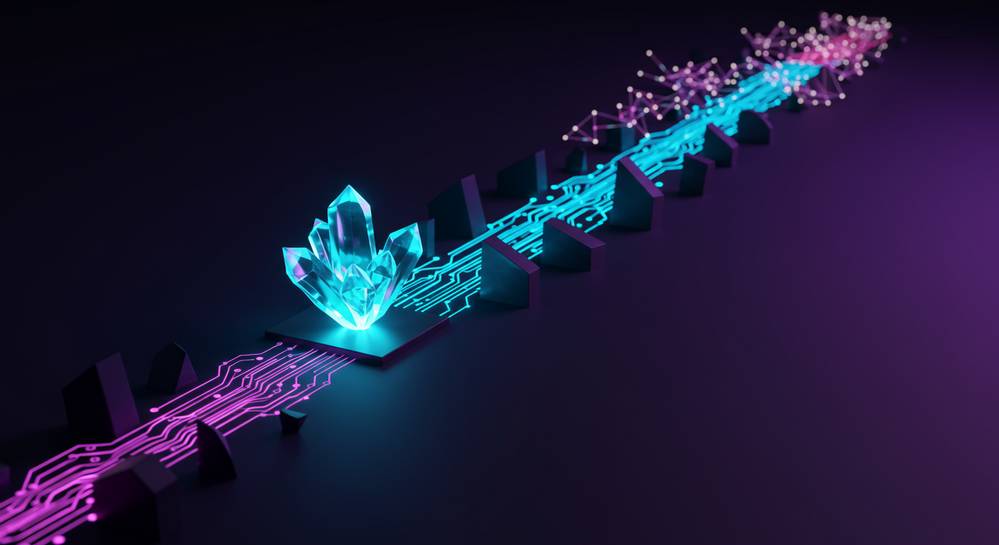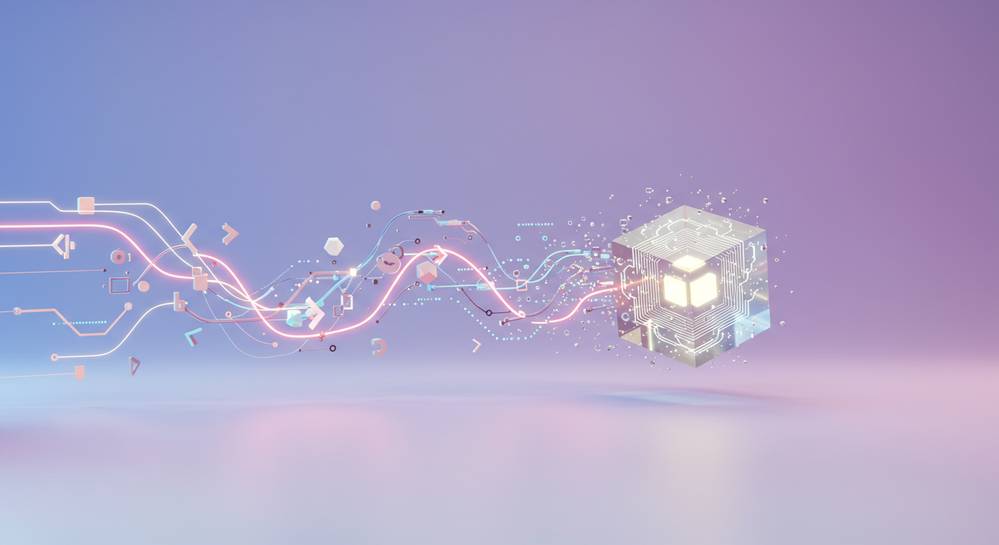In a world where data breaches feel as common as coffee runs, it’s clear that traditional security methods are failing us. That’s where Secure data management and privacy protection with blockchain comes into play. This isn’t just another buzzword to skim over. It’s a game-changer for safeguarding your private information. I’ll show you how the backbone of cryptocurrency – blockchain – is now the ironclad vault for data security. Say goodbye to sleepless nights fretting over hackers and hello to blockchain, your new data defense hero. Let’s dive in and unlock the potential of blockchain to transform privacy protection once and for all.
Understanding Blockchain Technology and its Impact on Data Security
The Fundamentals of Blockchain for Secure Data Management
Blockchain is like a digital ledger. Think of it as a diary that’s tough to cheat. It records data in blocks. Then it chains them together. That’s why we call it blockchain. Each block has a unique code. It’s a fingerprint called a ‘hash’. This makes sure no one can change the data.
This tech is special for keeping data safe. Why? Because it’s not in one place. It’s spread out. This is what we mean by ‘decentralized’. If someone tries to mess with data, they need to change every single copy. It’s like changing every book in a huge library at once. This stops hackers well.
Blockchain protects you. It keeps your personal data safe. No one can see it unless they have a special key. This makes blockchain strong against hacking.
We also care about following rules. Rules like GDPR, which keep your data private. Blockchain helps here too. It stays private, just like you want.
How Advanced Encryption Methods Reinforce Privacy
Now, let’s talk about keeping secrets safe. Blockchain uses tough puzzles called ‘encryption’. These make sure only the right people see your data. It’s like sending a locked box. The person with the key can open it.
Imagine you want to keep a note safe, but lots of people need to see it too. You could use a method called ‘zero-knowledge proofs’. It’s a smart way to prove you know something without showing what it is. So, you can check the note without ever seeing the words.
Encryption is a big word, but it’s just about making sure no one peeks at your stuff. With blockchain, we take top-notch security methods and make them even stronger. It’s like having a bodyguard that’s also a puzzle master.
We use things called ‘smart contracts’ on the blockchain. They are like deals that run themselves when certain things happen. If you agree to something, like sharing your health data, it only gets shared if all rules are followed. This keeps your information in a secure spot.
And remember, once something is written on blockchain, it’s there for good. No one can rub it out or write over it. Your data stays put. It’s all about making sure you can trust where your information goes.
Blockchain is a big deal for keeping your data safe and private. From your name to where you live, we want to keep it under a digital lock and key. This is how we use blockchain to guard your privacy.
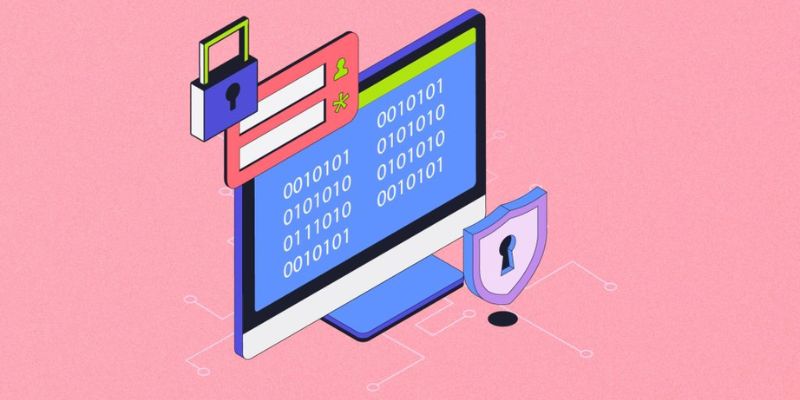
Implementing Blockchain Solutions for Enhanced Privacy Protection
The Role of Decentralized Data Management in Upholding Privacy
Decentralized data management is key to keeping our personal info safe. It means no single place holds all our data. This way, hackers have a harder time getting to it. When we use blockchain for our data, we spread out the storage of our info. This spread-out approach is a big deal. It can stop those trying to sneak a peek at our private details.
Blockchain’s power lies in its public ledger. This ledger records all data exchanges. But, it does this in a way that keeps our true info hidden. Only those who should see our data can do so. We call this ensuring privacy with blockchain. Each person has a special key to get to their data. Without this key, the data is just a complicated code.
With blockchain, we use advanced encryption methods. These methods scramble our data. It’s like writing a secret message that only friends with a decoder ring can read. That means if someone bad grabs our data, they can’t make sense of it. It’s secure, unreadable jumble to them. This way, our secrets stay secret.
Blockchain solutions for privacy let us be boss of our own info. We decide who gets to see and use our data. This control is a big plus. It means we feel safer when we share online. It’s like having a guard who checks IDs before letting anyone in.
Regulatory Compliance and Blockchain’s Adaptability to GDPR
GDPR stands for General Data Protection Regulation. It’s a set of rules from Europe. It says that people have rights over their own data. Companies must protect this data. Blockchain technology is great because it can adapt to these rules. It helps businesses keep up with the law.
By using blockchain to manage personal data, we follow GDPR. Blockchain keeps track of who sees or changes data. It makes a record that can’t be wiped away. This record-telling is key for following the law. It shows we are trying to keep data safe.
Also, blockchain helps with risk assessment. It finds and fixes weak spots where data might leak. This is done before any harm happens. With smart contracts, we set strict rules for handling our data. No one can break these rules. They are set in stone, or in this case, set in the blockchain.
For health data on blockchain, it’s even more serious. We must take extra care to keep health info private. Blockchain allows this by giving tight access controls. Only the right doctors and nurses can see your health records. It’s like a locked filing cabinet, but way safer.
All in all, blockchain is a strong friend in our fight for privacy. It’s helping make the web a place we trust. With blockchain, we sleep better, knowing our data is safe.
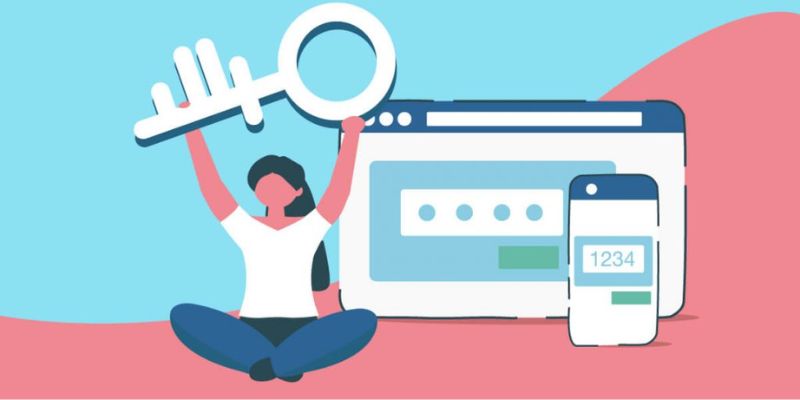
Innovations in Privacy Technology: From Zero-Knowledge Proofs to Smart Contracts
Ensuring Anonymity with Blockchain Privacy Tools
Privacy is key online. We use web tools to buy goods, chat, and share info. To stay safe, we need to keep our personal details private. Blockchain keeps this info safe for us. It creates a special, safe place where details are kept secret. This way, only you own your info.
Blockchain helps by spreading out data. This makes it really hard for bad folks to find and steal it. It uses hard puzzles, called encryption, to lock away your details. Only the right key can unlock it, like a treasure chest. This keeps our secrets locked away on many computers.
Another cool puzzle tool is zero-knowledge proofs. They let you show you know a secret without giving it away. Imagine proving you have a key without showing the key itself. This gives you power over your private stuff.
Smart Contracts and Their Contribution to Confidential Data Handling
Smart contracts are like pinky promises on the blockchain. They make sure everyone plays fair. They run on rules that everyone agrees on. When these rules are met, the smart contract does its job. It’s like a vending machine. You put in money, select your snack, and get your treat.
In dealing with private stuff, these smart contracts are top-notch. They only show what’s needed and keep the rest secret. They can protect health info, keeping it between you and your doctor. Smart contracts make sure no one peeks at your details unless you say so.
With these smart contracts, we can trust that our info is safe. It’s like having the best lock on your diary. No one reads it unless you give them the key. This helps us stay in charge of our digital stuff and keeps our secrets, well, secret.
By using both blockchain privacy tools and smart contracts, we create a strong shield. This shield protects our secrets from hackers and peeping eyes. It helps us feel safe while we surf, shop, and share online.
Blockchain is changing how we protect our private lives online. It makes sure we can chat, shop, and explore without worry. We deserve to keep our digital lives to ourselves. Blockchain is a strong ally in keeping our secrets just that—secret.
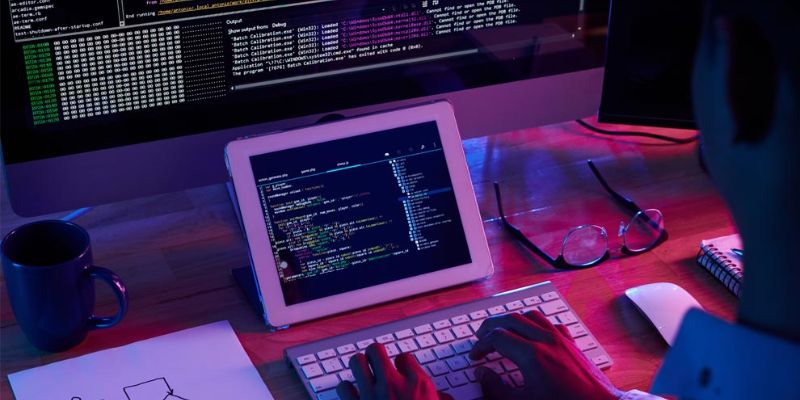
The Road Ahead for Blockchain in Secure Data Management
The Potential of Blockchain to Combat Data Breaches and Hacking Attempts
Imagine a locker so smart, it knows who should open it and who shouldn’t. That’s like blockchain technology for data security. It stores bits of data in many places so it’s hard to steal. Picture this: hackers try to break in, but because the information is not all in one place, they lose the game. This is how blockchain is fighting against hacking. It makes sure that our secrets stay safe.
By using advanced encryption methods, blockchain turns our private data into puzzles. Even if someone sneaks a peek, they don’t see our secrets. It’s like they can’t read the language our data speaks in. Cryptographic security techniques are tricks that blockchain uses to keep our stuff safe and sound. It’s like having the best guard ever.
With so many smart brains working on blockchain, we keep making it stronger against bad guys. We call this blockchain for cyber defense. Now, keeping your special things safe is not just about locks and keys. It’s like having a superhero guard them. And as we find new ways to keep data safe, blockchain keeps getting better at guarding our stuff. We’re talking about things like zero-knowledge proofs. These are like magic tricks where you can prove you know a secret without telling the secret. Cool, right?
Establishing a Trustless System for Identity Verification and Data Sovereignty
Let’s talk trust. It’s nice to have, but wouldn’t it be cool if we didn’t need it with machines? That’s where a trustless system comes in. It’s like when kids swap toys but make rules so no one tricks the other. That way, they don’t need to guess if the other kid is honest. In a trustless system, you don’t need to trust; the rules do that job.
Here, on the blockchain, you can show who you are without giving away your secret identity. So, it’s like playing hide and seek where you always know who’s ‘it’ but you never get caught. You keep your privacy, and your data is safe and sound.
Having control over your stuff is called data sovereignty. It’s like being the king or queen of your own castle. And with blockchain, your data’s castle has super strong walls. We’re building more doors only you can open, which we call access control in blockchain.
In summary, blockchain is helping us big time to keep our personal things safe. It stops hackers, keeps our secrets, and doesn’t ask for trust it hasn’t earned. The road ahead is looking safer because of these amazing blockchain tools. And guess what? We’re nowhere near done making this tech even cooler and safer for all of us.
In this blog, we explored how blockchain boosts data security. We dove into blockchain basics and how tough encryption shields our privacy. We also saw how blockchain can enhance our privacy through decentralized data handling and keeping up with privacy laws like GDPR. We discussed cutting-edge tech like zero-knowledge proofs and smart contracts that help keep our data anonymous and safe. Lastly, we looked at blockchain’s future in fighting hacks and creating trustless systems for handling our digital IDs and data rights. As an expert, I believe blockchain holds unparalleled potential for safeguarding our digital lives. It’s not just about tech; it’s about building a future where our private info stays just that—private.
Q&A :
How does blockchain technology enhance data security and privacy?
Blockchain technology offers an enhanced level of data security and privacy through its decentralized nature and encryption mechanisms. Since blockchains distribute data across a network of computers, it is difficult for hackers to compromise data integrity. Each transaction on the blockchain is encrypted and linked to the previous transaction, creating an immutable ledger. This ledger ensures that data is secure and unalterable once committed.
What are the benefits of using blockchain for data management?
Using blockchain for data management brings several benefits, including:
- Increased transparency because blockchain transactions are visible to all network participants.
- Improved traceability since each record on the blockchain can be easily tracked and verified.
- Enhanced security due to the decentralized nature of blockchain, which mitigates the risks of centralized data breaches.
- Reduced costs in some cases because the need for middlemen or intermediaries is eliminated.
Can blockchain be used to protect personal data privacy?
Yes, blockchain can be used to protect personal data privacy. By giving individuals control over their own data through private keys, blockchain technology ensures that only authorized parties can access and handle personal information. Smart contracts can further set rules for data sharing, automatically enforcing privacy agreements.
How does blockchain ensure GDPR compliance?
Blockchain can help ensure GDPR compliance by providing a secure and auditable trail of data transactions. Personal data can be pseudonymized on the blockchain, enhancing privacy and enabling individuals to own and control their personal data, which is central to GDPR regulations. However, it’s critical to design the blockchain system in a way that allows for data to be modified or deleted, to fully comply with the ‘Right to be Forgotten’ principle under GDPR.
Are there any challenges to integrating blockchain for secure data management?
While blockchain offers several advantages for secure data management, there are challenges to integration, such as:
- Scalability issues, as the size of the blockchain can grow significantly, affecting performance and cost.
- Legal and regulatory concerns, particularly in areas where the technology and legal standards are not yet fully harmonized.
- Technical complexities that can hinder adoption for organizations lacking expertise in blockchain technology.
- Potentially high energy consumption for certain blockchain technologies, though newer, more efficient consensus mechanisms are being developed.
Each of these challenges requires careful consideration and often tailored solutions for effective implementation of blockchain in secure data management and privacy protection.

